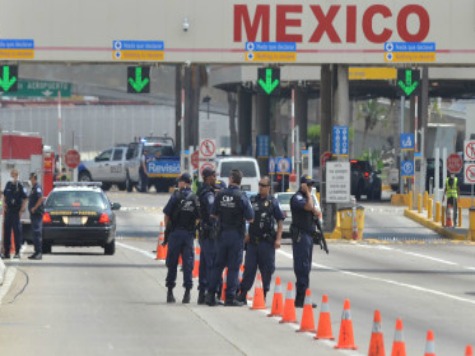Despite having a complex immigration system in place Mexican authorities refuse to enforce the laws. A recent attempt to enforce those laws in the Mexican State of Baja California was met with a backlash from the business community forcing authorities to stop.
The program was halted earlier this week at the Otay-Mesa border crossing where pedestrians entering Mexico were asked to show a passport and declare how long they planned to stay in the country, according to the U-T San Diego.
The program started earlier this year to ease in the enforcement of existing laws that require that tourist present immigration documents, and if they are planning on staying more than seven days they must pay a fee.
Obtaining a tourist card, or FMM, can help visitors if they encounter trouble in Mexico, Figueroa said. In addition, Mexico needs to get a handle on who is entering the country if they want to keep out sex offenders and other criminals who seek refuge across the border.
According to Figueroa, the Baja California ports of entry do not have the necessary infrastructure to fully enforce Mexico’s existing immigration laws.
The halting of the program came after Baja California’s governor Francisco Vega De La Madrid spoke with Figueroa’s boss at the immigration office expressing the same concerns that the business and tourism industry had with such measures. According to UT San Diego, the governor plans to stop charging fees to tourists who enter Mexico on foot.
While the governor’s intention of fostering tourism may be rooted in good intentions, his efforts leave the door open to serious security concerns when dealing with international travel and trade.
Breitbart Texas Contributing editor and border security expert Sylvia Longmire said, “It’s beyond comprehension that the Mexican government would not want a full accounting of who is entering their country. However it seems that cross border dollars are more important to them than national security.”
The article mentions concerns over sex offenders and criminals entering, but an equal concern is also southbound U.S. guns heading into the hands of Mexican cartels, as well as illegal drug revenues in the form of bulk cash, prepaid gift cards, and trade goods used to launder cartel money, Longmire said.
“That ‘the necessary infrastructure is lacking’ at the ports to enforce the law is shameful for an industrialized nation post-9/11 and in the midst of transnational criminal insurgency.”
Follow Ildefonso Ortiz on Twitter @ildefonsoortiz

COMMENTS
Please let us know if you're having issues with commenting.